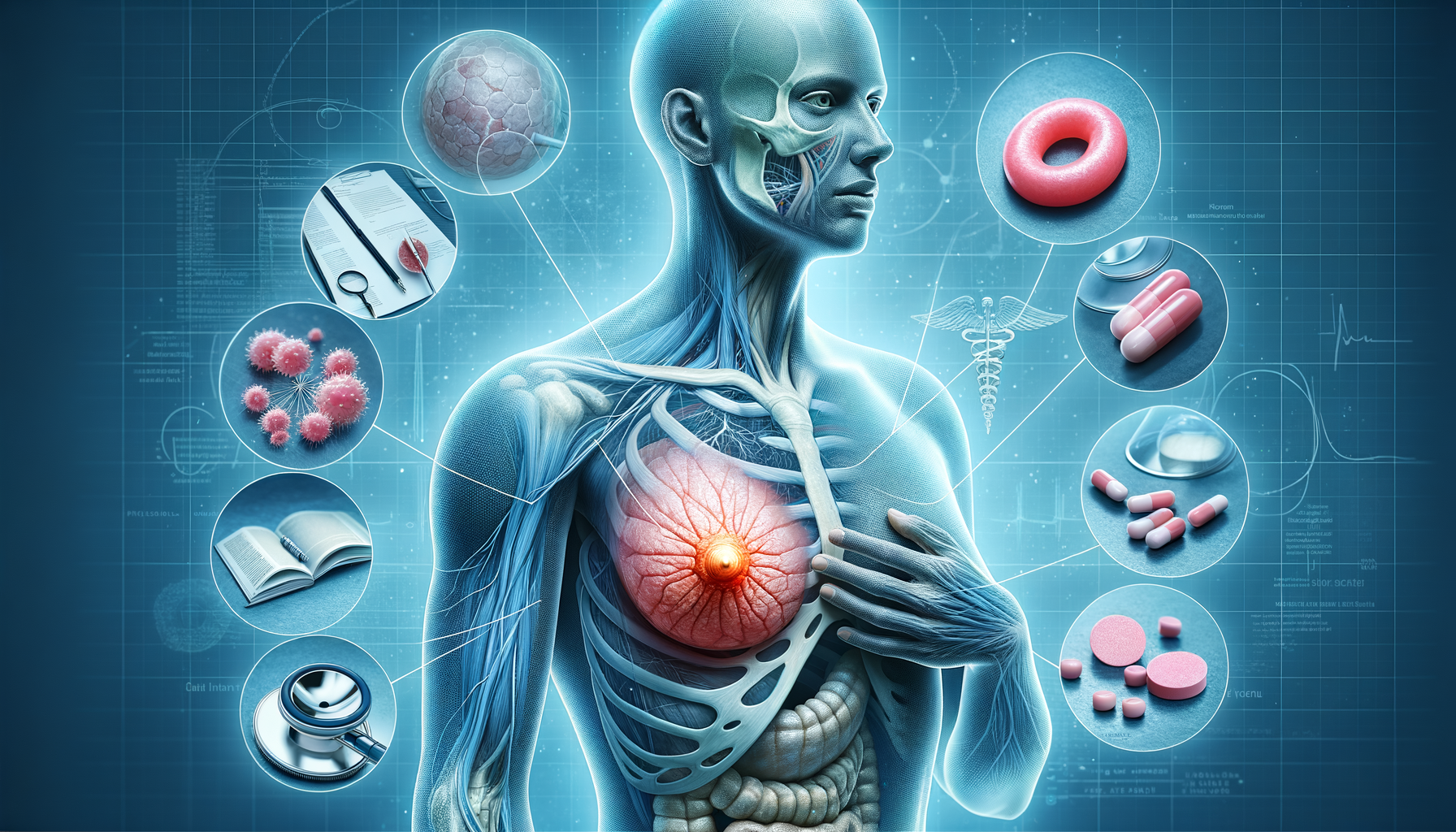Understanding Ductal Carcinoma: A Comprehensive Overview
Ductal carcinoma, a common form of breast cancer, originates in the lining of the milk ducts. It is crucial to understand the nature of this disease to navigate the treatment process effectively. There are two main types: ductal carcinoma in situ (DCIS) and invasive ductal carcinoma (IDC). DCIS is non-invasive, meaning it hasn’t spread beyond the ducts, whereas IDC has penetrated surrounding breast tissue.
Recognizing the symptoms early can significantly impact the course of treatment. Common signs include a lump in the breast, changes in breast shape, or discharge from the nipple. However, many cases are detected through routine mammograms before symptoms appear, highlighting the importance of regular screenings.
Understanding the risk factors can also aid in early detection and prevention. These include age, genetic mutations, family history, and lifestyle choices. While some factors like genetics are unchangeable, others, such as diet and exercise, can be managed to reduce risk.
Diagnosis and Treatment Options
Once ductal carcinoma is suspected, a series of diagnostic tests are conducted to confirm the presence and stage of the cancer. These typically include mammograms, ultrasounds, and biopsies. The results guide the treatment plan, tailored to the individual’s condition and preferences.
Treatment options for ductal carcinoma vary depending on the type and stage of the cancer. Common approaches include surgery, radiation therapy, chemotherapy, and hormone therapy. Surgery might involve a lumpectomy or mastectomy, depending on the extent of the cancer. Radiation therapy often follows surgery to eliminate any remaining cancer cells.
New advancements in targeted therapies and immunotherapies offer additional avenues for treatment, particularly for those with specific genetic markers. These therapies aim to attack cancer cells more precisely, minimizing damage to healthy cells.
Living with Ductal Carcinoma: Emotional and Physical Well-being
A diagnosis of ductal carcinoma can be overwhelming, affecting both emotional and physical health. It is essential for patients to seek support from healthcare professionals, family, and support groups. Emotional well-being is as crucial as physical health, and counseling or therapy can be beneficial.
Maintaining a balanced lifestyle can aid in managing the side effects of treatment. This includes a nutritious diet, regular exercise, and adequate rest. Patients should work closely with their healthcare team to develop a personalized plan that supports their overall well-being.
Engaging in activities that bring joy and relaxation can also be a vital part of the healing process. Whether it’s spending time with loved ones, pursuing hobbies, or practicing mindfulness, these activities can provide much-needed relief and positivity.
Support Systems and Resources
Access to a robust support system is invaluable for individuals battling ductal carcinoma. This includes not only medical professionals but also family, friends, and community resources. Support groups, both in-person and online, offer a platform for sharing experiences and advice.
Numerous organizations provide resources and assistance to patients and their families. These can include educational materials, financial aid, and counseling services. It’s important for patients to explore these options to alleviate some of the burdens associated with treatment.
Healthcare providers can also guide patients towards complementary therapies, such as acupuncture or massage, which may help manage treatment side effects and improve quality of life.
Future Directions in Ductal Carcinoma Research
Research in ductal carcinoma continues to evolve, offering hope for more effective treatments and potential cures. Current studies focus on understanding the genetic and molecular basis of the disease, which could lead to more personalized treatment strategies.
Clinical trials play a critical role in this research, testing new drugs and therapies. Patients may consider participating in these trials, which can provide access to cutting-edge treatments while contributing to scientific advancement.
As research progresses, the goal is to improve survival rates and quality of life for those affected by ductal carcinoma. Continued support for research initiatives is essential to achieve these objectives and bring new innovations to the forefront of cancer care.




Leave a Reply